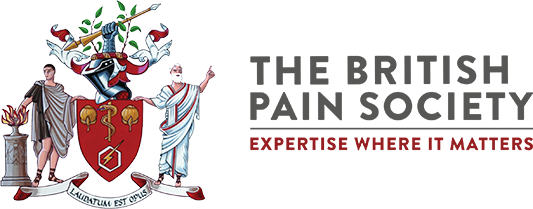The Tyranny of Diagnosis
29th Jun to 2nd Jul 2015
Register here https://www.britishpainsociety.org/meeting-booking/the-tyranny-of-diagnosis-philosophy-ethics-sig-meeting/
“When accurate diagnosis is impossible and appropriate treatment unavailable we delude both our patients and ourselves by using diagnostic labels and prescribing specific treatment” James McCormick
“Today the kingdom of the well is being rapidly absorbed into the kingdom of the sick, as clinicians and health services busy themselves in ushering people across the border in ever increasing numbers”. Iona Heath
When we have put a chronic pain patient in a diagnostic box which determines a course of intervention (or fail to make a diagnosis ) do we stop thinking about their real needs?
DIAGNOSIS – A TWO EDGED SWORD: Tyrant or Democrat?
In his paper Diagnosis is Treatment American physician Howard Brody writes: “The diagnosis itself exercises a therapeutic effect” inasmuch as it explains the symptoms, encourages expressions of care, and “provides a mantle for distress that society will accept, and implies the possibility of gaining control over it”. But in his book Stories of Sickness, he suggests that in making a diagnosis, in one sense “a physician creates illness just as a lawmaker creates crime”, accusing medicine of creating illness by the way that distress arising from causes that are not primarily pathological, but personal and social, is construed and treated.
Iona Heath warns against “detaching notions of disease from the experience of suffering, broadening the definitions of diseases, turning risk factors into diseases, and, most potent of all, fear”.
Charles Rosenberg, whose words provide the title of the conference, describes how “in the act of diagnosis, the patient is necessarily objectified and recreated into a structure of linked pathological concepts and institutionalized social power. Once diagnosed, that bureaucratic and technically alienated disease-defined self now exists in bureaucratic space, a simulacrum thriving in a nurturing environment of aggregated data, software, bureaucratic procedures, and seemingly objective treatment plans”.
The availability of diagnostic tools encourages us to use them and want more and better versions of them, focussing attention on what they can be used for and diverting attention from the wider question of why they are needed in the first place, which may have more to do with psychosocial factors than pathology. As Howard Spiro has written, “One reason why doctors over treat and over study and do not always talk with, or listen to, their patients is that they are too busy looking at organs and laboratory findings. Technology is overused because doctors expect to find an answer to every problem if they only look hard enough with the right instruments”.
Interventional pain therapy necessarily requires accurate diagnosis, but there is a danger that having placed a patient in a diagnostic category and embarked on the standard therapeutic pathway for this we may fail to recognise their real needs. This is the dilemma that this conference sets out to explore.
Professor Paul Dieppe Professor of Health and Wellbeing, University of Exeter Medical School, will argue that doctors are obsessed by making the ‘right diagnosis’ and correcting departures from perceived normality, giving diagnostic labels to modest deviations from the ‘normal range’ for a number of variables. But the experience of illness is of more importance to most patients than any disease label. This raises fundamental ethical and moral problems as the inappropriate provision of a diagnosis to individuals or their relatives can do real harm.
Antony Chuter, Chair of the BPS patient liaison committee, will talk from the perspective of someone who has lived with pain for over 22 years. What does having a diagnosis or not mean to him now and what did it mean to him the past? What does it mean to be a patient? - how is it different from being a health care professional? – aren’t we all patients?
The remainder of the programme will consist of presentations submitted by participants on the above or any other topic not usually covered in conventional clinical and scientific meetings.
Free Papers
These are warmly invited on any subject not normally adequately covered in conventional scientific and clinical meetings, but which may give rise to perplexity or anxiety. Accounts of clinical cases and situations giving rise to ethical and other dilemmas will be particularly welcome. The important thing is to provoke debate. There is no fixed deadline for submissions but an early response would not only be appreciated but advisable to guarantee inclusion in the programme. There is no need to provide a formal abstract: a brief outline will suffice.
Outline Programme
The fixed points are arrival in time for supper at 6.30 p.m. on Monday 29th June and departure after lunch on Thursday 3rd July The final programme will be distributed to participants in May. The afternoons of Tuesday and Wednesday (between lunch and tea) will be free for walking in the glorious surrounding countryside and other recreation. There will be daily Tai Chi sessions for early risers.
Accommodation
Some sharing of double rooms may be necessary. Please indicate on the application form if there is anyone you would particularly wish to share with, or if you feel have a strong priority (not just a preference) for a single (or ground floor or wheelchair accessible) room. Beds may be available for accompanying partners if number of applicants permits.
Fees
Rising costs, mainly of accommodation, have regrettably necessitated a corresponding rise in fees. These have been pared to an irreducible minimum to avoid making a loss, and as in previous years involve Consultants and GP’s subsidising our less well-off colleagues. Accompanying partners will be charged for accommodation only.
The fees are as follows
|
BPS Members |
Before May 1st |
After May 1st |
|
Consultants and GP’s |
£435 |
£475 |
|
Other delegates |
£315 |
£345 |
|
|
|
|
|
Non-BPS Members |
Before May 1st |
After May 1st |
|
Consultants and GP’s |
£570 |
£650 |
|
Other delegates |
£330 |
£435 |
|
|
|
|
|
Accompanying guests |
£300 |
£300 |
Travel
Launde Abbey, an Elizabethan manor house set in its own peaceful valley in the heart of the East Leicestershire Wold, surrounded by 11 acres of garden and over 440 acres of pasture and woodland, is near the village of East Norton some 14 miles east of Leicester. It is easily accessible by car or public transport. Details will be provided in the final programme.
Register here https://www.britishpainsociety.org/meeting-booking/the-tyranny-of-diagnosis-philosophy-ethics-sig-meeting/





